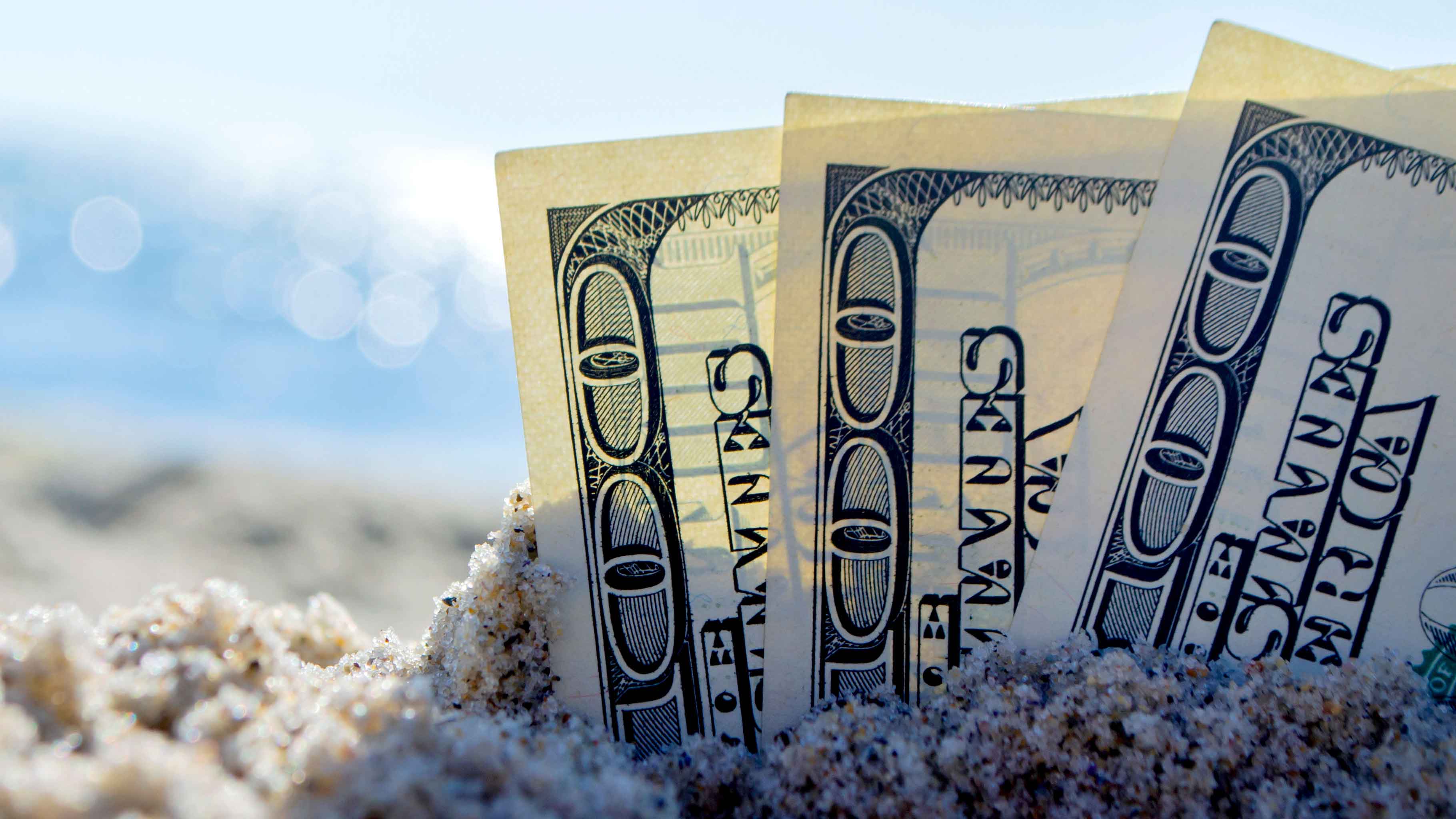Monopoly for a New Generation
The game plays into millennial stereotypes, but in reality we’re not much different than other generations.

Profit and prosper with the best of Kiplinger's advice on investing, taxes, retirement, personal finance and much more. Delivered daily. Enter your email in the box and click Sign Me Up.
You are now subscribed
Your newsletter sign-up was successful
Want to add more newsletters?

Delivered daily
Kiplinger Today
Profit and prosper with the best of Kiplinger's advice on investing, taxes, retirement, personal finance and much more delivered daily. Smart money moves start here.

Sent five days a week
Kiplinger A Step Ahead
Get practical help to make better financial decisions in your everyday life, from spending to savings on top deals.

Delivered daily
Kiplinger Closing Bell
Get today's biggest financial and investing headlines delivered to your inbox every day the U.S. stock market is open.

Sent twice a week
Kiplinger Adviser Intel
Financial pros across the country share best practices and fresh tactics to preserve and grow your wealth.

Delivered weekly
Kiplinger Tax Tips
Trim your federal and state tax bills with practical tax-planning and tax-cutting strategies.

Sent twice a week
Kiplinger Retirement Tips
Your twice-a-week guide to planning and enjoying a financially secure and richly rewarding retirement

Sent bimonthly.
Kiplinger Adviser Angle
Insights for advisers, wealth managers and other financial professionals.

Sent twice a week
Kiplinger Investing Weekly
Your twice-a-week roundup of promising stocks, funds, companies and industries you should consider, ones you should avoid, and why.

Sent weekly for six weeks
Kiplinger Invest for Retirement
Your step-by-step six-part series on how to invest for retirement, from devising a successful strategy to exactly which investments to choose.
Like many ’90s kids, I grew up playing classic board games, including Monopoly. Recently, game maker Hasbro cashed in on our childhood nostalgia with Monopoly for Millennials, which features Rich Uncle Pennybags taking a selfie, holding a latte, and wearing earbuds and a participation medal. Instead of buying property and amassing cash, players discover destinations—ranging from “Parents’ Basement” to “Week-long Meditation Retreat”—and collect “experience” points. The game, which roasts millennials with the same one-liner clichés we’ve heard for years, was met with ire online but quickly sold out.
But at the suggestion of my editors—both baby boomers—I tracked down the game on Amazon at triple its $20 retail price and gathered friends to play it and see what Hasbro had to say about our generation. Some of my friends found the game offensive, while others appreciated the self-deprecating humor. As we played, we were almost always strapped for cash and waiting for a break (pick up a fourth job, collect $45) or a calamity (unpaid student loans, go to jail), with little chance to increase our income or save for future goals. And yet, with its bikeshares, yoga studio and snarky comments, the game was surprisingly relatable and funny.
Jokes and jabs aside, the financial reality for millennials is challenging. Coming of age during the Great Recession—when student debt ballooned, the job market shrank, wages flattened and credit was put in a vise—has left millennials with lower incomes and fewer assets than Gen Xers and boomers had at the same age, according to a recent Federal Reserve report titled “Are Millennials Different?” But things aren’t as bleak as many have suggested.
From just $107.88 $24.99 for Kiplinger Personal Finance
Become a smarter, better informed investor. Subscribe from just $107.88 $24.99, plus get up to 4 Special Issues

Sign up for Kiplinger’s Free Newsletters
Profit and prosper with the best of expert advice on investing, taxes, retirement, personal finance and more - straight to your e-mail.
Profit and prosper with the best of expert advice - straight to your e-mail.
Busting clichés. The same obstacles that have stacked the deck against millennials may have also made us better with money. The game implies that millennials live in the moment and spend without planning for the future. But more than 40% of us set money aside monthly, according to a recent study by financial services firm Allianz. Plus, we are prioritizing retirement, with about half of millennials with a 401(k) contributing 10% or more of their income each month, says Allianz.
Granted, for others, saving for retirement draws the short straw. Two-thirds of working millennials haven’t started saving for retirement, reports the National Institute on Retirement Security. That’s cause for concern, but it tracks patterns set by prior generations. A survey by the financial site Comet found that 41% of Gen Xers and 42% of boomers say they haven’t started to save for retirement, either.
For a long time, too, millennials weren’t buying homes at the same rate as previous generations did. In fact, the game’s tagline is “Forget real estate. You can’t afford it anyway.” But now, millennials make up the largest group of home buyers, according to the National Association of Realtors. And in 2018, roughly four in 10 millennials owned their own home, while only 16% reported living with their parents, according to a recent report by professional services firm EY.
Millennials have also often been criticized for spending on experiences, such as travel and brunches with avocado toast. But after accounting for differences in earnings compared with prior generations, the Fed study found that millennials’ spending habits and consumer preferences are similar to those of Gen Xers and boomers. One big difference: Social media fuels our spending, with nearly 60% of millennials saying they make unplanned purchases because of what they see on social media feeds, reports Allianz.
As for Monopoly for Millennials, it’s mercifully shorter than the traditional game, leaving us time to play better games, hang out at an artisanal coffee shop or work on a side hustle.
Profit and prosper with the best of Kiplinger's advice on investing, taxes, retirement, personal finance and much more. Delivered daily. Enter your email in the box and click Sign Me Up.

-
 Over 65? Here's What the New $6K 'Senior Deduction' Means for Medicare IRMAA Costs
Over 65? Here's What the New $6K 'Senior Deduction' Means for Medicare IRMAA CostsTax Breaks A new deduction for people over age 65 has some thinking about Medicare premiums and MAGI strategy.
-
 U.S. Congress to End Emergency Tax Bill Over $6,000 Senior Deduction and Tip, Overtime Tax Breaks in D.C.
U.S. Congress to End Emergency Tax Bill Over $6,000 Senior Deduction and Tip, Overtime Tax Breaks in D.C.Tax Law Here's how taxpayers can amend their already-filed income tax returns amid a potentially looming legal battle on Capitol Hill.
-
 5 Investing Rules You Can Steal From Millennials
5 Investing Rules You Can Steal From MillennialsMillennials are reshaping the investing landscape. See how the tech-savvy generation is approaching capital markets – and the strategies you can take from them.
-
 When Renting Is Smarter Than Buying
When Renting Is Smarter Than Buyingreal estate There are some situations when renting is smarter than buying. You're not necessarily throwing your money away when you rent.
-
 How Do You Pay off Credit Card Debt?
How Do You Pay off Credit Card Debt?Making Your Money Last Pay off credit card debt with these tried-and-true strategies.
-
 Bear Market Strategy for Millennial Investors
Bear Market Strategy for Millennial InvestorsA focused, goal-oriented approach to investing can help millennials navigate a bear market.
-
 Rent vs. Buy: Sometimes Renting is Better
Rent vs. Buy: Sometimes Renting is BetterPersonal finance experts have long held that homeownership is a key step to building lasting wealth. How does that hold up in a pricey real estate market?
-
 How Our Family Fights Inflation
How Our Family Fights InflationBudgeting Millennials typically spend more than other generations on certain expenses that have been increasing most rapidly. Here are some tips to cut your losses.
-
 Make a Plan for Your Parents' Care
Make a Plan for Your Parents' CareCaregiving The ideal time to begin talking with your parents is before they need care.
-
 Strategies for Working Remotely
Strategies for Working RemotelyBusiness Travel Globe-trotters should keep in mind that every country has different rules when it comes to working within their borders.
-
 Where to Find Emergency Cash
Where to Find Emergency CashMaking Your Money Last Even if you're debt-averse, having a credit card to pay for emergencies could be an important lifeline.